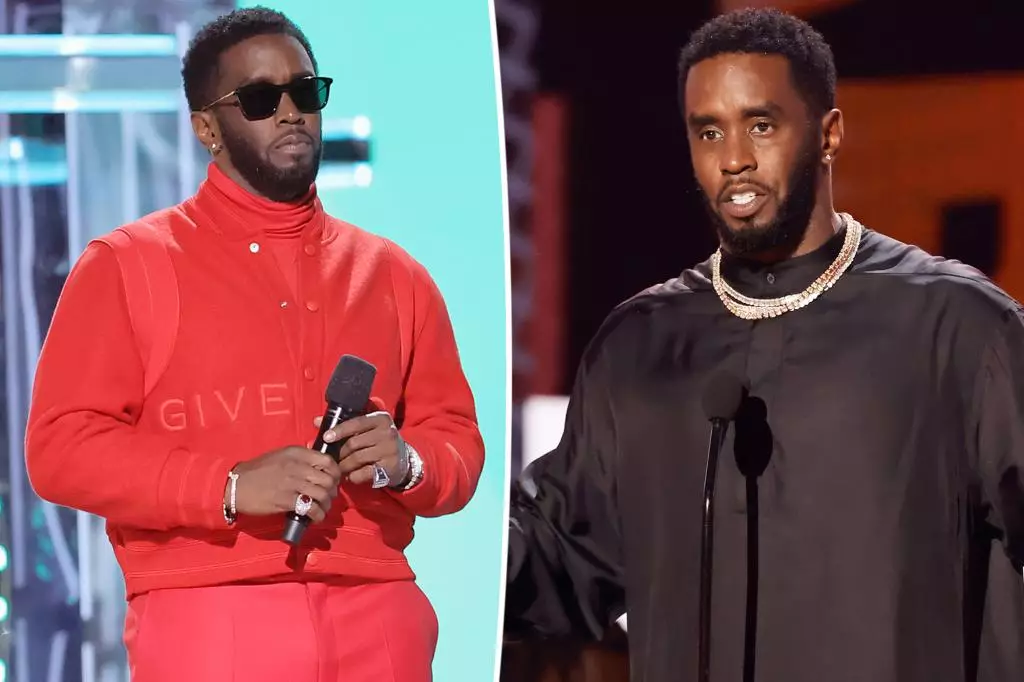In the realm of high-profile criminal cases, decisions made by the accused often define their fate. Sean “Diddy” Combs, a well-known figure in the music industry, is preparing to face grave charges including sex trafficking and racketeering. While he contemplates testifying in his own defense, legal experts warn against this course of action. This article delves deep into the potential outcomes of such a bold move, weighing the pros and cons while considering the broader implications of his legal strategy.
Combs’ decision to take the stand carries significant risks, primarily due to the rigorous nature of cross-examination. Meesha Moulton, a prominent attorney based in Las Vegas, emphasizes that this process can be “mentally grueling.” Testifying opens the door for the prosecution to challenge Combs on various aspects of his statements, seeking inconsistencies that could undermine his credibility. The very act of being subjected to intense questioning can become a major stumbling block. Moulton articulates her concerns about how a flustered or frustrated demeanor could adversely affect the jury’s perception of Combs.
Cross-examination is designed to dismantle a witness’s credibility, and Moulton suggests that this could represent the “biggest challenge” in Combs’ trial. While the allure of presenting his side, framed as a “human story” of love and heartbreak, may be compelling, it is essential for Combs to prioritize a well-crafted legal strategy over personal narrative—a factor that cannot be overstated in such high-stakes litigation.
The Dangers of Emotional Vulnerability on the Stand
The emotional toll of testifying cannot be understated, particularly when confronted with damaging allegations outlined in the indictment. Combs is accused of coercive and abusive behavior toward women over many years. This profound scrutiny could provoke emotional responses, potentially leading to a breakdown in composure during questioning. According to Moulton, any visible signs of distress could significantly sway jurors, who may interpret a loss of control as an admission of guilt rather than as a reaction to the pressure of the courtroom environment. The legal stakes could hardly be higher; thus, maintaining emotional stability should be paramount.
Combs’ attorney, Marc Agnifilo, suggests that testifying could reposition the focus from the prosecution’s narrative to Combs’ own perspective. While this may hold merit—allowing Combs to challenge evidence and share his philanthropic efforts—it is critical that these contributions are presented through the lens of his legal representation rather than his own words. His attorney’s narratives and strategies may better control the dialogue in the courtroom, allowing for a more structured and less vulnerable approach to the case.
Moulton also notes that while Diddy may aim to humanize himself through testimony, the potential for creating confusion among jurors hinges on his ability to articulate that narrative without falling prey to the pitfalls of direct questioning. A strategy that places more faith in legal counsel rather than self-representation may ultimately prove more advantageous.
Beyond the immediate legal challenges, the ramifications of the charges against Combs extend into the public sphere. The allegations revolve around a series of “Freak Off” parties that reportedly facilitated reprehensible behavior amid a backdrop of celebrity culture and excess. Prosecutors allege that Combs orchestrated an extensive criminal enterprise that employed tactics ranging from coercion to bribery. The shocking revelations, such as the recovery of significant quantities of baby oil and lubricant from Combs’ residences, foreground the severity of the accusations.
Facing these charges, Combs has pleaded not guilty and continues to contest allegations in various sexual assault lawsuits. The seriousness of the potential consequences—facing up to 15 years in prison if convicted—creates an urgent need for a tactical response. While the date of Combs’ trial remains uncertain, the upcoming status hearing on October 9 will likely provide greater insight into the trajectory of his case.
Sean Combs stands at a crossroads in his legal battles. The decision to testify is fraught with peril, placing him in a precarious position where emotional and narrative control is pivotal. While the desire to share his own story is understandable, the potential fallout from a poorly executed appearance on the stand could be detrimental. A strategic defense led by skilled legal counsel, rather than personal testimony, may yield the most favorable outcome amidst the complex web of allegations surrounding him. As Combs prepares for the next steps in this high-profile case, carefully weighing risks and rewards will be essential as the courtroom drama unfolds.


Leave a Reply